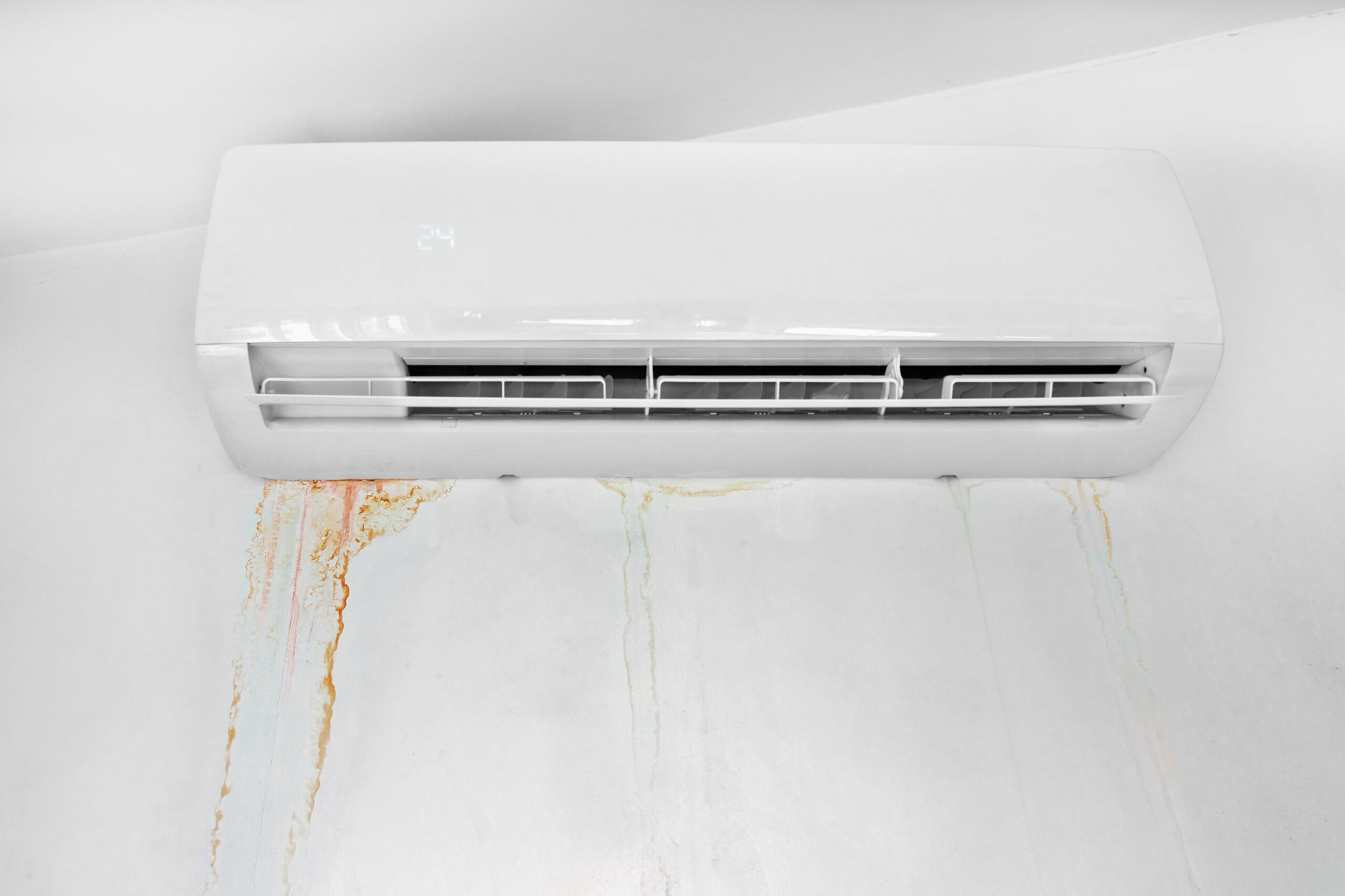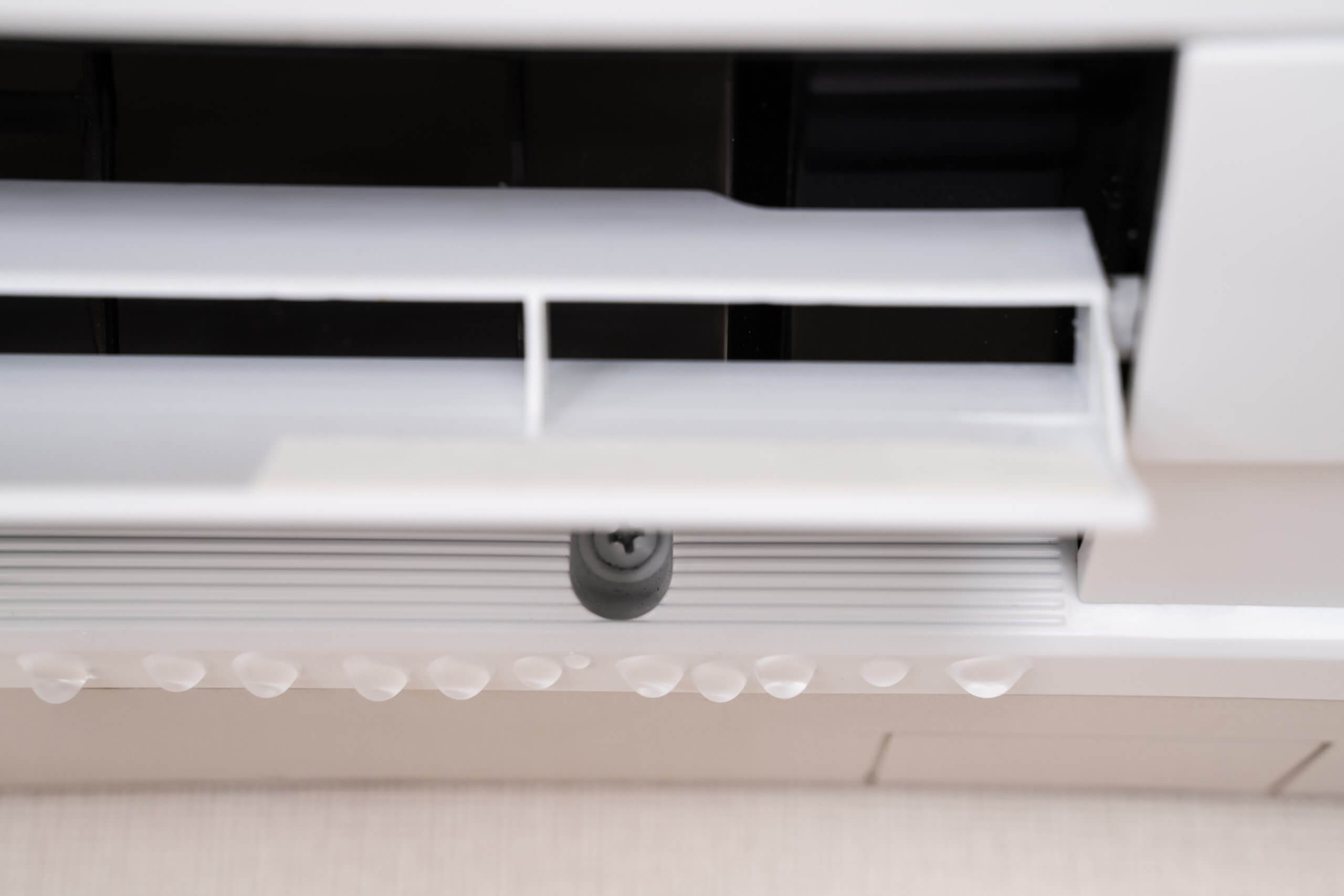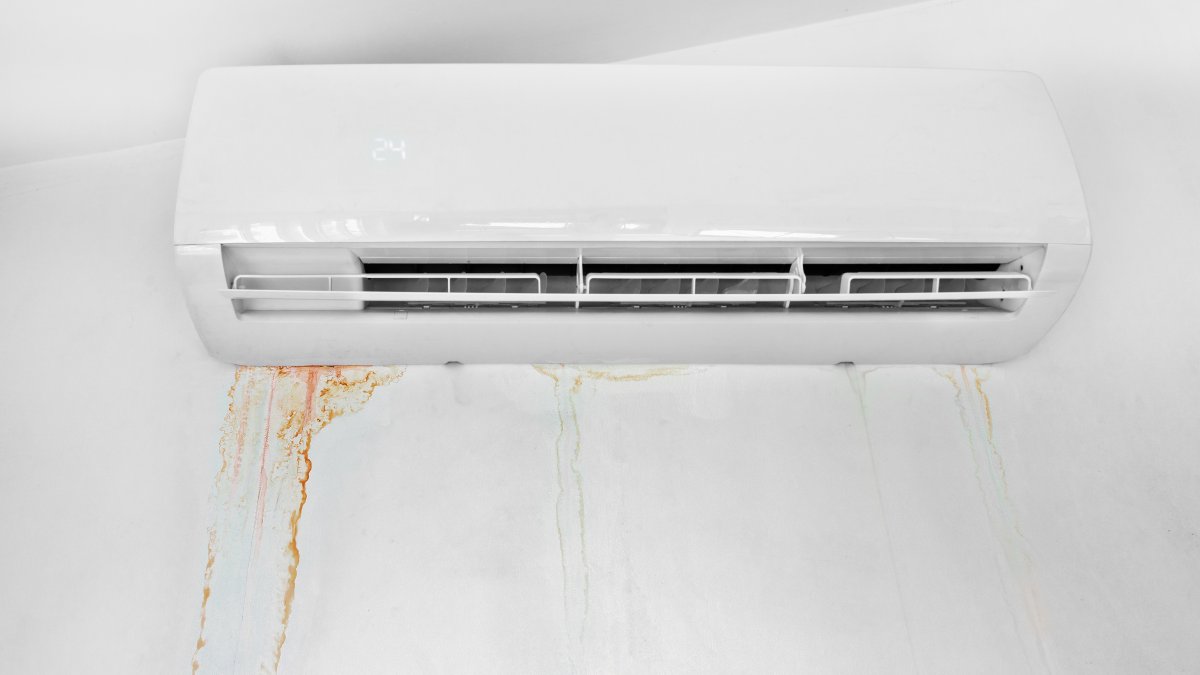
A small amount of water leaking from your air conditioning unit is normal due to condensation. But the excessive amount isn’t good. Water may leak from your air conditioning (AC) system because of clogged or disconnected drain lines. Frozen evaporator coils and cracked or overflowing drip pans also cause water to leak from your unit. The liquid on your AC unit or refrigerant can also cause leaks.
Water leaks look unsightly and disturbing because they can form mold and mildew that can damage your walls and ceilings as well as harm your family’s health. Therefore, it’s crucial to fix a leaky air conditioning unit as soon as possible with the help of professional HVAC services.
In this article, you’ll learn the important troubleshooting steps for water dripping from an air conditioner.
1. Check The Filter
Air conditioning units have an air filter to keep out the dirt and dust from the atmosphere while allowing clean air to enter the house. If your air conditioner’s air filter is clogged or dirty, the evaporator coils get frozen, which results in excessive water dripping indoors. That’s why you need to check and clean your air conditioning unit’s filter regularly.
Before you check the filter of your AC, make sure to shut down and unplug your unit to ensure electrical safety. You need to replace the air filter of your air conditioner at least every three months or every 45 days for maximum efficiency.
2. Double Check Installation
Air leak due to poor AC installation is one of the reasons that may cause dripping water. The air reaches the AC passing through the vent for optimal functioning. Also, faulty reasons may cause air leakage. The air doesn’t pass through the vent, affecting its functionality.
A water leak may occur if there’s a gap between the air conditioning unit and the condensate tray. It also holds the same with an exposed drain pipe. Therefore, you need to double-check the installation of your AC to avoid water leaks.
3. Fix Blocked Drain Pipe
Because the drain pipes carry the water out of your air conditioning unit, large blocks will cause the water to accumulate and drip. Newer air conditioning units have sensors, alerting the homeowners for the presence of a clogged drain line, allowing you to fix the issue before water damage occurs.
You can find the AC drain line outside the house near the AC condenser unit. Using a stiff, thin brush, you can push the clog into the end of the drain line to clear any clogs. If your drainpipe is blocked farther down, you need to clear the clogs using a vacuum to suck any debris and clear the clog using a wet vacuum to clean all dirt, debris, and mold.
4. Check The Condensate Tray

The water will likely leak if the condensate tray, the part of your air conditioner that collects the condensed water, is rusted, broken, or damaged. This problem arises when your air conditioning system is running.
5. Check Refrigerant Level
If the refrigerant level of your AC is low, it may affect its cooling capacity. You’ll notice that your air conditioner isn’t cool as it used to be. The signs of low freon or refrigerant level of an AC include ice formation on refrigerant lines and cooling a room takes a long time. When your AC requires a freon recharge, it’ll start to blow warm air instead of cold air.
6. Ensure Regular Maintenance
Your air conditioning unit requires timely and regular maintenance. It’s essential to clean your AC unit regularly and seek professional help as necessary. You also need to check the evaporator coil to check early rusting and ensure it’s working properly to prevent leaking water.
You can carry out do-it-yourself maintenance or contact an HVAC specialist to do this job, including comprehensive preventive maintenance. Regular preventive maintenance of your air conditioning unit includes the following:
- Cleaning exterior and interior coils, including fan and evaporator coils
- Using a vacuum and a brush to clean the evaporator’s aluminum fins
- Using a spray solution to clean the fan and rinsing it thoroughly with warm water.
Conclusion
You’re now more equipped with the right knowledge on how to troubleshoot a leaky air conditioning system. Whatever type of AC you have, it’s essential to check the air filters, refrigerant level, and drains to ensure they’re in good condition. Hire an experienced HVAC company for AC issues beyond your knowledge and skills to avoid the same problem from occurring again.
John Richardson
Related posts
Stay connected
Today's pick
- The Importance of Professional Handyman Services for Your HomeYour home is your sanctuary, a place of comfort and security, but maintaining it can be a daunting task. From routine maintenance to unexpected repairs, there’s always something that needs attention. While many homeowners might be tempted to tackle these jobs themselves, not all tasks... The post The Importance of Professional Handyman Services for Your […]

